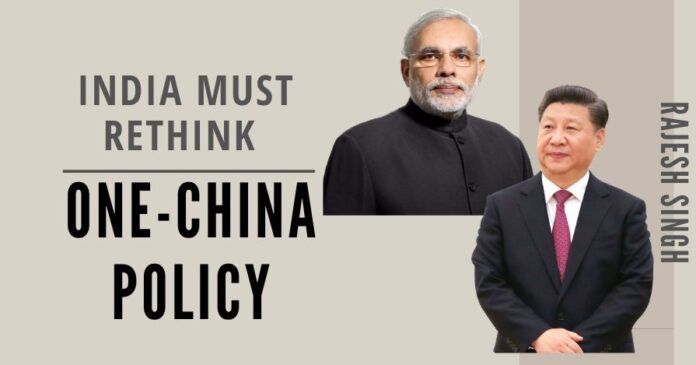
India kept away from issues that were sensitive to the Chinese leadership, did not join the international voices which were critical of Beijing
Incursions or attempts at incursion by the Chinese on the Line of Actual Control (LAC) have happened before, but the Indian response had never been as robust as now. Had the Chinese forces not indulged in violence which claimed the lives of ten of our soldiers, perhaps the counter-measures would have been as passive as before. But Beijing’s skullduggery — which incidentally resulted in more than 30 Chinese soldiers being killed in retaliation by Indian forces — forced New Delhi’s hands.
This is just as well. For decades, successive Indian governments have lived under the illusion that Beijing can be trusted to resolve the border dispute with India in a free and fair manner as two civilized nations should. Even the 1962 and 1967 episodes did not dilute that optimism. Not only did we continue to repose trust in the Chinese, but we also allowed them to swamp our markets with their cheap goods, while our own products received an only limited entry in their market. This led to a huge trade imbalance in their favour.
An even bigger message was delivered by Prime Minister Narendra Modi himself, when he made a surprise visit to Leh some days ago, where he lectured China, without naming it, against expansionism.
Not just that, we continued to engage with them politically as friends. We kept away from issues that were sensitive to the Chinese leadership, did not join the international voices which were critical of Beijing, and even aligned with them on a certain subject at global platforms. It was not just the previous Congress regimes that pampered the Chinese; the present NDA leadership too went to great lengths to humour them. Chinese President Xi Jinping was invited to India and hosted with much pomp and show, once in Gujarat, and more recently in Tamil Nadu.
It does appear now, thankfully, that the government has finally seen the true face of Beijing. The Indians have acted commendably. On the military front, our soldiers have given as good as got. The Indian troop build-up has been happening in Ladakh along the LAC, with the Indian Air Force also in action. The message is clear: there is no going back unless China restores the status quo ante.
An even bigger message was delivered by Prime Minister Narendra Modi himself, when he made a surprise visit to Leh some days ago, where he lectured China, without naming it, against expansionism. He also said that India sought peace but when provoked, also knew how to respond forcefully. The firmness rattled the Chinese, who had become used to passive postures from the Indian side. its media went on an overdrive, seeking to paint India as the villain. And its diplomats are busy pinning the blame on New Delhi for the confrontation.
Before the Prime Minister’s visit, a few other decisions were taken that hit the Chinese where it hurts them. The Indian government banned 59 Chinese-linked apps, some of which taken together enjoyed more than 60 percent share of the Indian market. Not only will their revenues be directly hit but their valuation too would get drastically scaled-down as a consequence. The road, telecom, and railways sectors have shut the doors on the participation of Chinese firms. Thee steps had never been taken before. It is possible that more such measures might be announced in the weeks to come.
Jawaharlal Nehru’s reluctance is a matter of record. Had his government been more assertive and courageous, it would have received support in the 1950s and the 1960s for its campaign over Tibet from the West, especially the US.
There has been another new development. Various important countries such as the US, Japan, and Australia have openly come out in India’s support, discarding their earlier neutral positions whenever the India-China border face-offs happened. Russia may be neutral in its statements, but its decision to sell cutting-edge military equipment — fighter aircraft, for instance — at this time of crisis, is significant. India can count on the support of smaller nations too, such as Vietnam and the Philippines, that have been troubled by China over the years in the South China Sea.
But the continuing support of the international community depends on India sustaining its offensive. If it were to go back to the old days, the global backing too will wane. For that, some strong political decisions should be taken. Domestically, the Modi government has demonstrated its resolve in that direction. The virtual abrogation of Article 370 and the legislation of the Citizenship Amendment Act (CAA)are two such instances. Now, if the Chinese do not mend their ways, it must take some bold politico-diplomatic decisions as well.
Beijing always flaunts its One-China policy. it considers Taiwan as its own territory, and it has occupied Tibet as part of that policy. New Delhi has been traditionally indulgent on this count, despite the fact that China has never acknowledged the One-India policy, which means that Pakistan-occupied Kashmir (PoK), Gilgit and Baltistan and Aksai Chin are part of Indian territory. The latter is occupied by the Chinese themselves, and Beijing’s Belt and Road Initiative (BRI) passes through PoK.
India must rethink its support to the One-China policy. If Beijing refuses to see reason, New Delhi must rake up the Tibet issue. It must open official channels of communication with Taiwan, ramping up trade with that country. and, New Delhi must speak out against China’s muzzling of the people in Hong Kong. If the gloves are to be off, they must be off completely. Half-hearted measures don’t work.
In any case, history tells us that we squandered the opportunity to put the Chinese on the mat over Tibet. Jawaharlal Nehru’s reluctance is a matter of record. Had his government been more assertive and courageous, it would have received support in the 1950s and the 1960s for its campaign over Tibet from the West, especially the US. But that is now past, and the present government has a chance to undo the damage.
Note:
1. The views expressed here are those of the author and do not necessarily represent or reflect the views of PGurus.











By This Time India Should Have Scrapped Its One China Policy
Nehru was a Chinese agent.
Nehru actively supported the Chinese and also the British and the Pakistanis.
This cannot be a coincidence
Nehru was known for his womanizing
It is quite likely that he was honey trapped, by all three – the British, the Pakistanis, and then the Chinese
Bharat was offered the Permanent UN Security seat, instead of China.
Bharat had no reason to hand over Tibet and actively assist the Chinese to conquer it
Nehru was given the choice of money and power ( PM of Bharat) or exposure of his photographs/films of him in compromising positions
He took the money and power.
Today the Nehru Gandhi Vadra Congress has come out , guns blaizing, in defence of their Chinese masters.
Exposure of these blackmail tapes even today would be more than the Nehru Gandhi Vadra family and congress could handle.
They have no choice, but to do their master’s bidding
No more dilly dallying or going on the back foot. Evidence you can’t trust China is plenty. Be firm. World is behind India and never let down the guard. Instead of China putting the pressure on you claiming part or the entire territory of Arunachal Pradesh, Sikkim, Bhutan, Nepal, Ladakh, Aksai Chin as their’s, keep the pressure on them that India will go all out to recognize total independence for Tibet and Taiwan. Give them-back, in their own coin, in the language they recognize rather well.
Setting aside the Tibet issue, we know that China occupied Aksai Chin and also took control of some land from Pakistan. This itself warranted that India treated China as an enemy. I will mention Dag Hammarskjold’s 2 quotes:-
1. “It is easy to be nice, even to an enemy – from lack of character.”
2. “It is when we all play safe that we create a world of utmost insecurity.”
There is no question of Mr. Nehru or Mr. Modi. Evidently, both behaved more or less in the same fashion – until this happened.
India should also mandate that only stock Android should be installed ( an update shoud be pushed for phones already sold) on phones sold in india. Only god knows what spyware comes as part of the roms provided by the Chinese phone companies like mi, oppo, vivo and one plus.